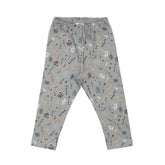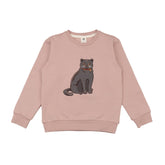8 WAYS TO BECOME SUSTAINABLE PARENTS
Raising a child is a wonderful and unique feeling, but have we considered the environmental impact of this process? Babies need so many things, and most of them are disposable. And because babies grow so quickly, most of the things we buy for them only last a few months. This puts even more strain on the environment.
Being a sustainable parent is more important than ever, especially with the threat of climate change. Fortunately, there are many small changes we can make in our daily lives to reduce our impact on the planet as parents. In this blog post, we'll share 8 ways you can live more sustainably as a parent. From composting food scraps to choosing sustainable toys, these tips can help you make a difference.
SUPPORT SUSTAINABLE BABY CLOTHING BRANDS:
One of the first steps toward becoming a sustainable parent is supporting sustainable clothing brands. Choosing to buy your baby's clothes from sustainable children's clothing brands like Walkiddy is making the right choice for both the environment and your baby's health. GOTS-certified organic cotton products follow sustainable processes from the cultivation of the raw material to the distribution of the product. No harmful fertilizers or pesticides are used in organic cotton cultivation, and much less water is wasted during cultivation than with conventional cotton. These products are also non-toxic, protecting your baby's health.
In addition, sustainable brands often implement projects that promote social responsibility toward the environment. In other words, supporting these brands also means supporting social responsibility projects that benefit nature and animals. For example, at Walkiddy, we donated the majority of the proceeds from the products sold as part of our Polar Bear Project to an organization dedicated to protecting polar bears. We regularly implement such projects.
BECOMING REUSABLE TO BE SUSTAINABLE PARENTS:
Unfortunately, many of babies' needs are met with disposable products. On average, a baby needs 5,000 to 6,000 disposable diapers before potty training [ 1 ]. This translates to significantly more waste in landfills. A similar problem exists with wet wipes. Wet wipes, the saviors of families, from changing diapers to cleaning hands and mouths, unfortunately cause great harm to the environment. However, thanks to reusable diapers, it is possible to avoid this waste. Furthermore, reusable wipes contain almost no chemicals and can be machine washed.
MAKE YOUR OWN BABY FOOD TO BE SUSTAINABLE PARENTS:
Making your own baby food allows you to customize the quality, consistency, and taste of the food your child eats to meet their specific needs. It's also cheaper than buying commercial baby food. Making your own baby food can also be more sustainable because you use ingredients you already have in your pantry or kitchen. To make baby food, you'll need some basic ingredients: fresh fruits and vegetables, unsalted proteins, and whole grains. You can find numerous recipes online that show you step-by-step how to prepare different types of baby food. Once you've got the basic recipe down, you can experiment with different variations by adapting the recipe to your liking. This way, you can ensure that mealtimes are always interesting and new for your child.
ECO-DETERGENTS TO BE SUSTAINABLE PARENTS:
It's normal to use the washing machine more often when you have a child. This naturally means more water and energy consumption. However, you can take some steps to reduce the environmental impact of this situation. You can run the washing machine with a full load. You can lower the temperature and use chemical-free and refillable detergent. All of this makes the laundry process more environmentally friendly.
BUY ECO-FRIENDLY BABY PRODUCTS TO BE SUSTAINABLE PARENTS:
You can choose your child's personal care products from eco-friendly brands. Choose organic, natural products that don't contain harsh chemicals in commonly used items like shampoo, soap, moisturizer, and toothpaste. This way, you'll protect your child's health and reduce the impact on the environment.
CHOOSE SUSTAINABLE TOYS TO BE SUSTAINABLE PARENTS:
Most children's toys are made of materials that contain harmful chemicals, such as plastic. To protect the environment, choose unpainted toys made from natural materials like wood and organic cotton. These sustainable toys made from safe materials are also the right choice for your child's health. If you do some research, you'll find that there are actually some sustainable children's toy brands on the market, such as Chimpy Toys, which offers a wide variety of educational and fun toys in its online store.
COMPOST YOUR FOOD WASTE TO BE SUSTAINABLE PARENTS:
Composting is a great way to reduce food waste and live more sustainably as a parent. By setting up a compost bin in your garden, you can turn your food waste into nutrient-rich soil for your plants. This process is called "composting." Composting is an easy way to reduce the amount of waste you produce and is good for the environment. Composting not only creates fertile soil but also prevents harmful bacteria from colonizing landfills.
EDUCATE YOUR CHILDREN ABOUT SUSTAINABILITY TO BE SUSTAINABLE PARENTS:
Raising environmentally friendly children is perhaps the most important step on the path to becoming sustainable parents. First and foremost, you should set an example for your children with your behavior. You can also explain to them why sustainability is important and encourage them to act in an environmentally friendly way in their daily lives. Of course, eco-friendly cartoons, books, and documentaries can also help them adopt sustainable habits more quickly.
We hope these tips have inspired you to make more sustainable choices in your daily life. Remember: every little bit counts! By making small changes in our daily lives, together we can make a big difference for our planet.






